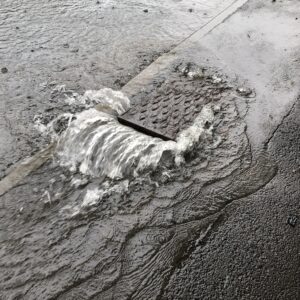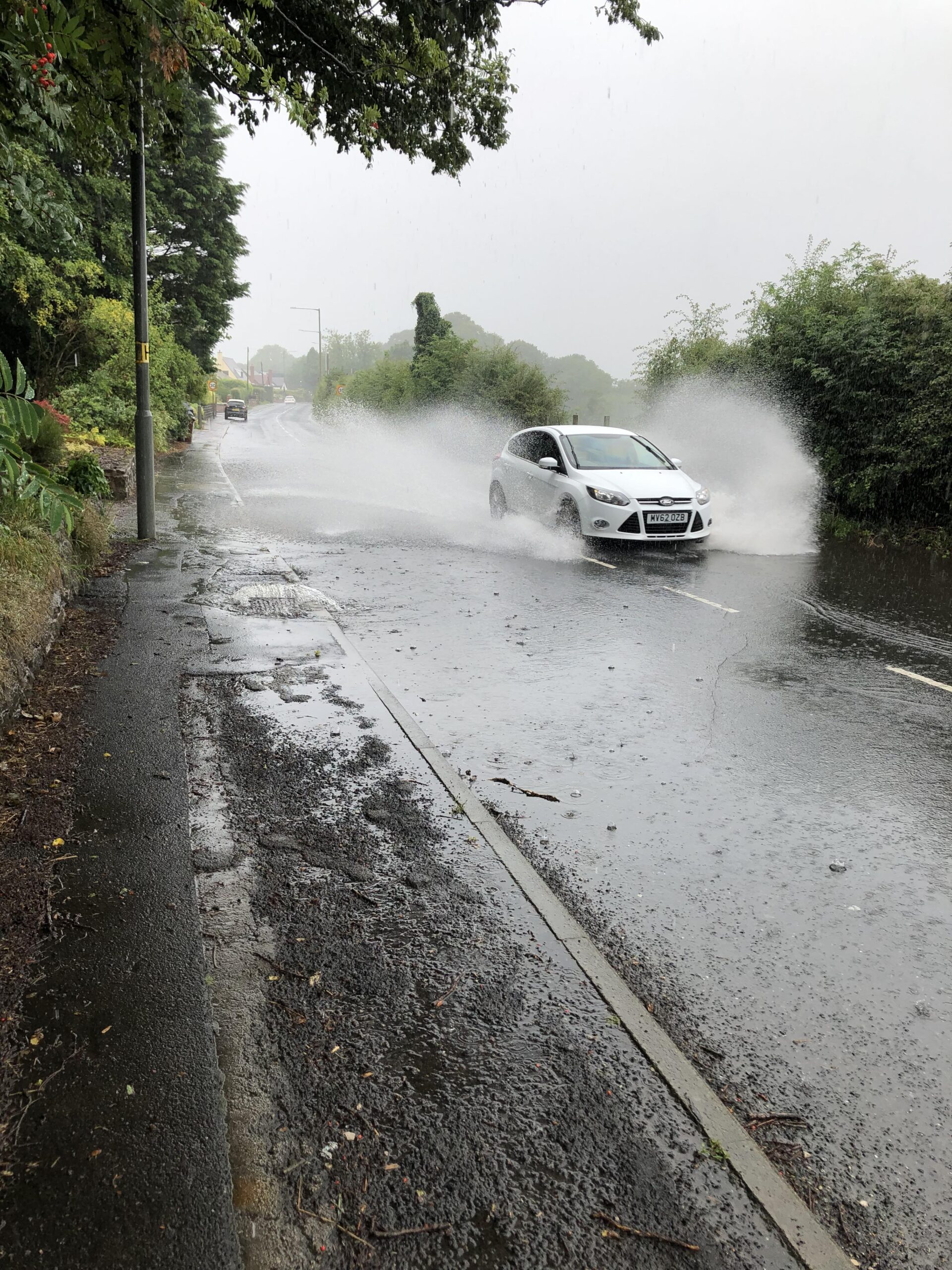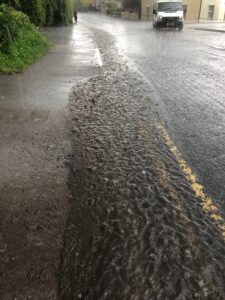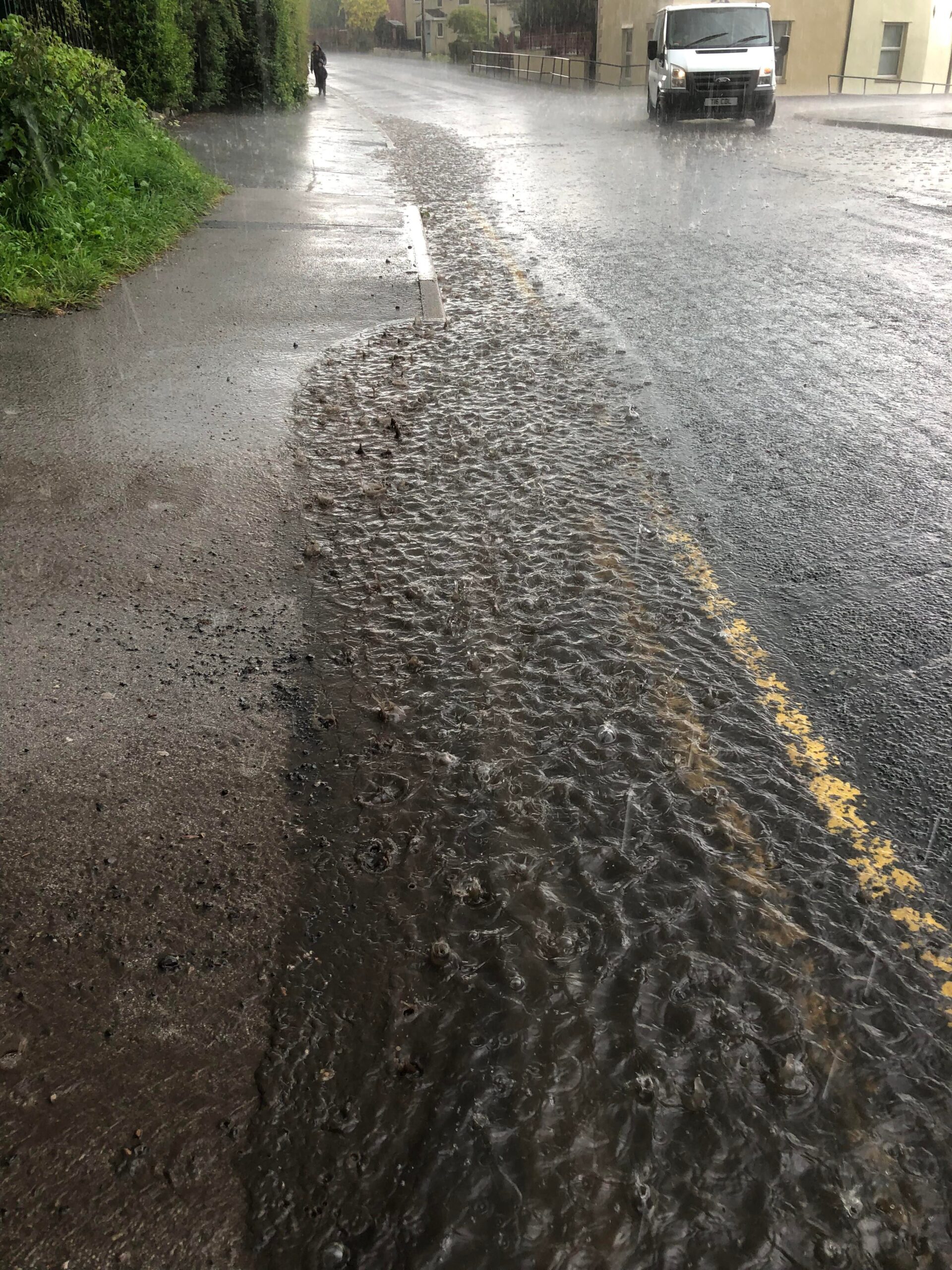On July 23rd 2023 we had a long and intense rainfall event in Preston, Lancashire; the local newspaper reported that we received 90mm rainfall in one day! Our intrepid Director of Operations, Jo Bradley, went out in the rain to see how the stormwater systems were coping. Many areas were coping well, although the river level was very high and riverside property owners were holding their breath. It was the highway drains that were struggling to cope, mostly due to inadequate maintenance and blockages of gully-pots. On Cinnamon Hill in Walton-le-Dale, the surface water sewer was surcharging badly and the local authority had fenced it off and removed the manhole cover, so that huge volumes of stormwater were running down the road. This particular sewer often suffers from overwhelming flows and surcharges, so Jo took a walk in the rain to see what could be done across the catchment to reduce the risk. The main road at the top of the hill is wide, with wide pavements and grass areas within the pavements. It couldn’t be more perfect for retro-fit SuDS if it tried. The road runoff could be diverted into large rain-gardens at the roadside and that would take the pressure off the sewer. But the cost would be high, and the sewer only surcharges a few times a year, so is it worth it? This is the conundrum that we are faced with across the UK at the moment. Where do we make the investments in infrastructure to deliver improvements and to reduce risk? Cinnamon Hill is more of a nuisance than anything else. The road is wide enough to allow the manhole to be fenced off without causing congestion and it doesn’t flood any residential properties, so perhaps it isn’t worth it? But the other benefits of those rain-gardens at the top of the hill would be excellent – new flower beds, habitats for wildlife and improvements in water quality. This is the balance that the SuDS community and water companies are having to make over and again at the moment. Everyone is clamouring for reduced spills at storm overflows and everyone thinks that their local overflow is the most important. The water companies and the Environment Agency have to keep clear heads and to make investment decisions based on facts and data, rather than reacting to the ‘loudest’ voices and the most vexatious complainants. The investments that we make now in better infrastructure must serve to protect us as the climate changes and our environment becomes more vulnerable.








